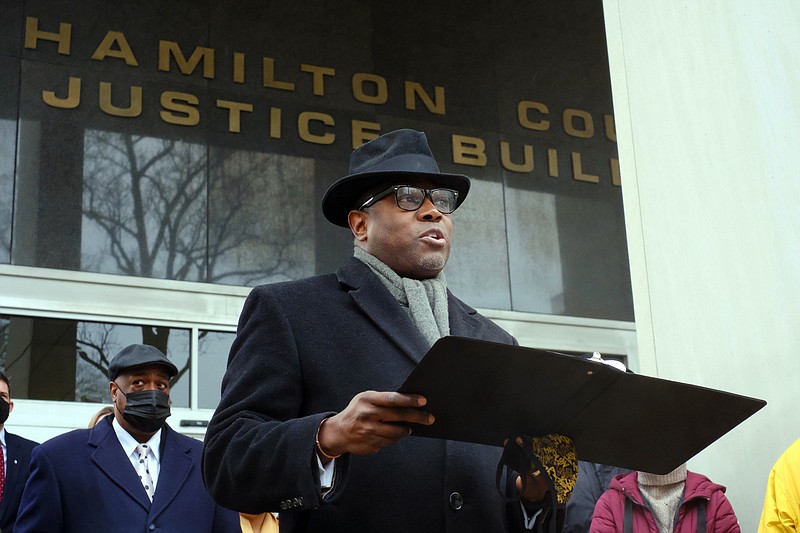The Chattanooga clergy members advocating for the Hamilton County Sheriff's Office to change its policies issued their first recommendations this week.
In a letter sent Wednesday evening to Sheriff Jim Hammond and other county and state leaders, Chattanooga Clergy for Justice said the sheriff's use-of-force policies are too vague about when deputies can use force and the appropriate level of force.
"The current use-of-force policy lists factors that a deputy may take into account when deciding whether to use force. Instead, the policy should require that officers take into account the subject's characteristics, such as their mental capacity, physical or developmental disability, the influence of drugs or alcohol and/or language barriers," the letter reads.
The clergy also recommended the sheriff change the policy to require that all deputy decisions leading up to an encounter be reasonable.
The Rev. William Terry Ladd III, pastor of First Baptist Church, said too many of the sheriff's policies are left up to individual discretion, which can make it difficult to determine whether a deputy acted improperly.
"We're going to go through the policy even more to pinpoint those instances where the use-of-force policy is left up to the officer or the deputy, as opposed to holding the deputy to that standard," Ladd said. "The way it's written right now, the deputy may or may not have to do a certain thing or follow certain protocol as it relates to use of force. It should be like the officer is required, instead of the officer may."
Last month, some area clergy, including ones working with the sheriff's office, went public with concerns around a lack of transparency and willingness to work with community members. More than 40 local clergy and six organizations signed a letter highlighting 19 incidents of alleged misconduct, the largest push against the department in what has been a yearslong back and forth.
The sheriff has declined previous clergy-led calls for his resignation after use of force incidents and said those clergy should instead help him recruit more diverse candidates for his department.
Hammond defended his department in a February letter to the clergy, in which he attached 110 pages of department policies, including policies around use of force, internal investigations and deputy code of conduct.
Ladd thanked the sheriff's office for releasing the information and said the clergy's legal team will continue to evaluate the policies and present more recommendations. The U.S. Department of Justice is helping work with the two groups, Ladd said.
Rachel Frizzell, public information officer for the sheriff's office, said the sheriff is out of town this week and not available for comment on the letter.
Ladd said the discussions around improving department policies is a community effort and will continue to better ensure residents are safe.
"All parties involved right now are doing a really really good job of working together," Ladd said. "Now, how long that will continue, we don't know. That's up to the sheriff's department."
Contact Wyatt Massey at wmassey@timesfreepress.com or 423-757-6249. Follow him on Twitter @news4mass.

